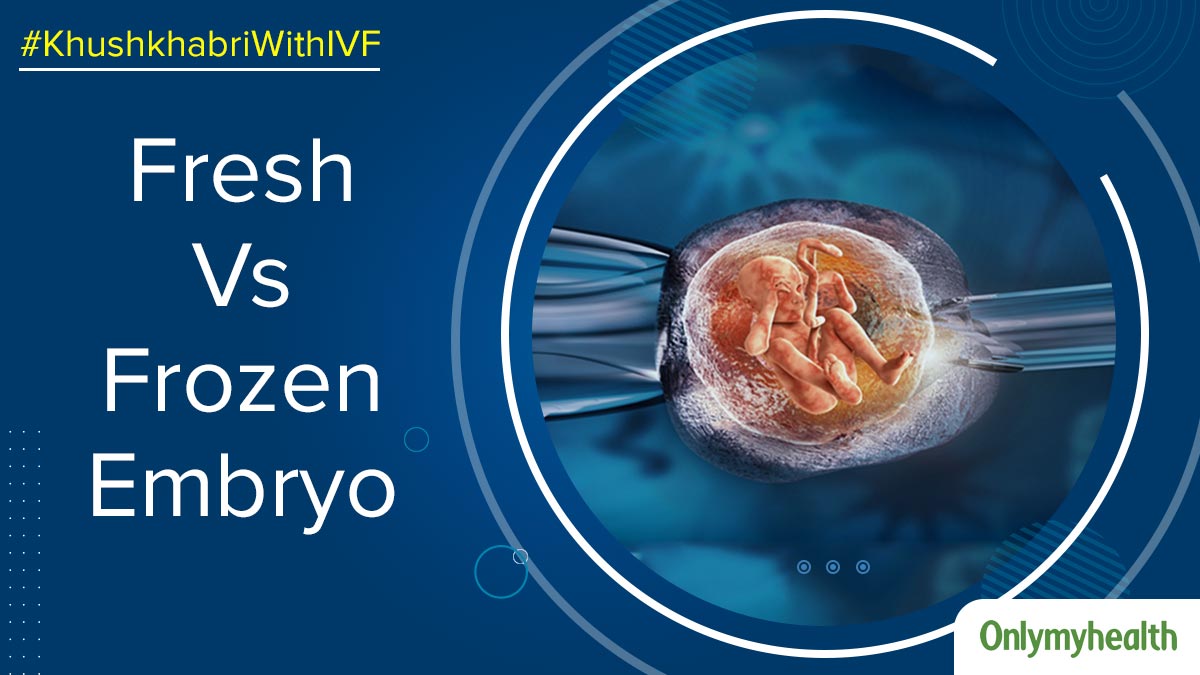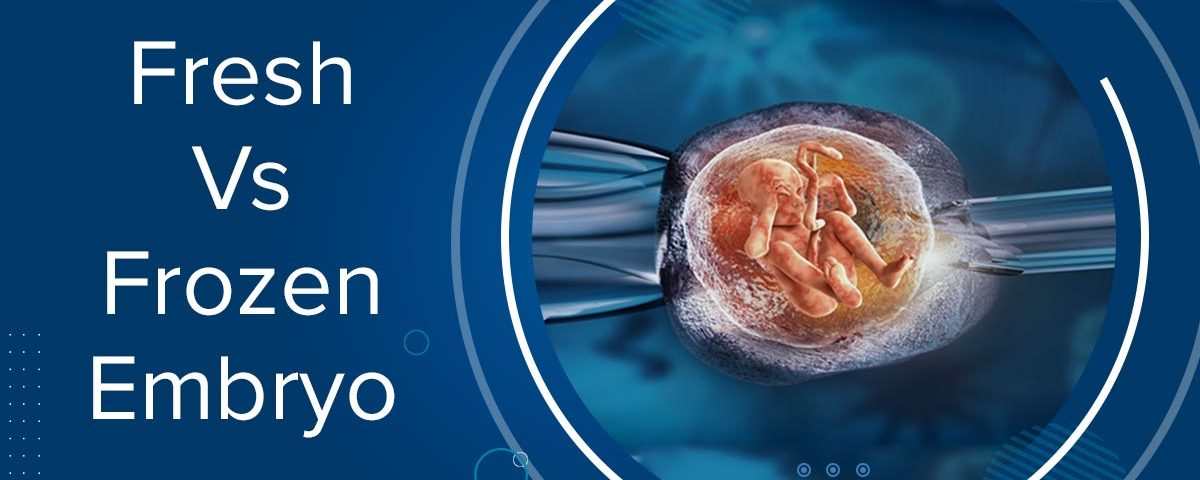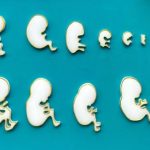Does IVF Freeze Eggs or Embryos? Everything You Need to Know
Hey there! If you’ve ever wondered about IVF (that’s in vitro fertilization, by the way), you’re not alone. It’s a topic that pops up a lot, especially for people dreaming of starting a family someday. One big question keeps coming up: Does IVF freeze eggs or embryos? The short answer? It can do both! But there’s so much more to unpack here—stuff you won’t find in a quick Google search or a casual chat with a friend. We’re diving deep into the world of IVF, freezing eggs, freezing embryos, and all the juicy details in between. Think of this as your ultimate guide, written just for you—whether you’re curious, planning, or just love learning something new.
Let’s get started!
What’s IVF All About Anyway?
IVF is like a superhero for people who want to have a baby but need a little help. It’s a process where doctors take eggs and sperm, mix them together in a lab (not your kitchen!), and then place the result back into a woman’s body to grow into a baby. Cool, right? But here’s where it gets interesting: IVF doesn’t always happen all at once. Sometimes, parts of the process—like eggs or embryos—get “paused” by freezing them for later. That’s called cryopreservation, and it’s a game-changer.
Why Freezing Matters in IVF
Freezing isn’t just some sci-fi trick—it’s a practical way to give people more control over their family plans. Maybe you’re not ready for a baby right now, or maybe you’ve got extra eggs or embryos from an IVF cycle. Freezing lets you save them for the future, kind of like putting your favorite leftovers in the fridge for tomorrow’s lunch. But here’s the twist: you can freeze eggs (unfertilized) or embryos (fertilized eggs). Which one happens in IVF? Let’s break it down.
Freezing Eggs in IVF: The Inside Scoop
Picture this: a woman decides she wants to keep her options open for having kids later. She’s not ready yet—maybe she’s chasing her dream job, traveling the world, or just hasn’t found the right partner. That’s where egg freezing (also called oocyte cryopreservation) comes in. It’s a big part of IVF for some people, and it’s got its own vibe.
How Egg Freezing Works
Here’s the step-by-step on how eggs get frozen during IVF:
- Step 1: Boosting Egg Production
Doctors give you special hormone shots for about 10-12 days. These shots tell your ovaries, “Hey, let’s make more eggs than usual!” Normally, you release one egg a month, but this ramps it up to 10-20 (or more if you’re lucky!). - Step 2: Egg Pickup Time
When the eggs are ready, a doctor uses a tiny needle (guided by ultrasound) to grab them from your ovaries. You’re asleep for this—it’s quick, about 15-30 minutes, and you won’t feel a thing. - Step 3: Flash Freeze Magic
The eggs don’t just sit in a regular freezer. They’re frozen super fast using a technique called vitrification. It’s like hitting pause on a video game—the eggs stay fresh and ready for later.
Why Freeze Eggs?
Egg freezing is a big deal for lots of reasons:
- Waiting for the Right Time: Maybe you’re 30, single, and want kids at 40. Freezing eggs now keeps them young and healthy.
- Medical Reasons: If you’re facing cancer treatment or something else that might hurt your fertility, this is a backup plan.
- Extra Eggs from IVF: Sometimes IVF makes more eggs than you need right away. Freezing them saves them for round two.
Fun Fact Fans Love: The Egg Freezing Celebs
Did you know stars like Emma Roberts and Paris Hilton have frozen their eggs? Emma once said she did it to “take the pressure off” finding a partner. It’s like a secret weapon for busy women who want to keep their baby dreams alive!
What Science Says About Egg Freezing
Studies show egg freezing works best when you’re younger—think under 35. According to a 2022 study from NYU Langone, women under 38 who froze 20+ eggs had a 70% chance of a baby later. Pretty impressive, right? But here’s the catch: not every egg survives the thaw (about 90% do), and not all turn into embryos. It’s a numbers game!
Tips for Egg Freezing Success
✔️ Freeze early—your eggs are healthiest in your 20s or early 30s.
✔️ Aim for 15-20 eggs if you can—it boosts your odds later.
❌ Don’t wait too long—egg quality drops after 35.
✔️ Talk to a fertility doc about your ovarian reserve (how many eggs you’ve got left).
Freezing Embryos in IVF: The Next Level
Now, let’s switch gears to embryos. An embryo is an egg that’s already been fertilized by sperm. In IVF, freezing embryos is super common, and it’s got some perks that eggs don’t. Ready to dig in?
How Embryo Freezing Happens
Here’s the rundown:
- Step 1: Egg Meets Sperm
After eggs are collected (same as above), they’re mixed with sperm in a lab dish. If all goes well, they turn into embryos after 5-7 days. - Step 2: Picking the Best Ones
Embryologists (the egg-and-sperm experts) check the embryos. The strongest ones—called blastocysts—get frozen. They’re graded like a report card: A+ embryos are the champs! - Step 3: Freeze ‘Em Up
Like eggs, embryos get vitrified and stored in liquid nitrogen at -320°F. They can chill there for years—sometimes decades!
Why Freeze Embryos?
Embryo freezing is a rockstar for these reasons:
- Extra IVF Goodies: If IVF makes more embryos than you need, you can save them for later instead of starting over.
- Higher Success Rates: Frozen embryos often have a better shot at pregnancy than frozen eggs because they’ve already “proved” they can grow.
- Fertility Backup: Couples facing medical stuff (like chemo) or military deployment freeze embryos to keep their baby plans safe.
A Little-Known Twist: The Embryo Adoption Trend
Here’s something wild—some people donate their unused frozen embryos to others! It’s like giving someone a head start on their family. There’s even an “embryo adoption” community where couples connect over this. Who knew, right?
Science Backs Embryo Freezing
Research loves embryo freezing. A 2023 Johns Hopkins study found that over 95% of frozen embryos survive thawing, and pregnancy rates match or beat fresh embryos (sometimes hitting 60% for women under 35). Plus, a Stanford study showed women with high progesterone levels do better with frozen embryos—up to 73% more likely to get pregnant!
Embryo Freezing Tips
✔️ Freeze at the blastocyst stage (day 5-7)—they’re tougher and more likely to work.
✔️ Consider genetic testing (PGT) before freezing—it weeds out issues early.
❌ Don’t freeze too many at once—focus on quality over quantity.
✔️ Plan with your partner—both need to agree on what happens to the embryos later.
Eggs vs. Embryos: What’s the Difference in IVF?
Okay, so IVF can freeze eggs or embryos—but what’s the real difference? Let’s put them head-to-head and spill some tea on what fans (and regular folks) want to know.
The Big Showdown: Eggs vs. Embryos
| Feature | Egg Freezing | Embryo Freezing |
|---|---|---|
| What’s Frozen | Unfertilized eggs | Fertilized eggs (embryos) |
| When It Happens | Before sperm enters the picture | After fertilization in the lab |
| Success Rate | 60-80% (if frozen young) | 40-60% per transfer, often higher |
| Who It’s For | Single women, future planners | Couples, IVF patients |
| Survival Rate | ~90% survive thawing | ~95% survive thawing |
| Partner Needed? | Nope—just you! | Yup—sperm donor or partner required |
Which One’s Better?
It’s not about “better”—it’s about you. Here’s the scoop:
- Eggs: Total freedom! No partner needed, no rush to decide. Perfect if you’re single or unsure about sperm plans.
- Embryos: More certainty! They’re already fertilized, so you know they’ve got potential. Great if you’re in a solid relationship.
Dr. Lindsay Kroener from UCLA Health once said, “Freezing embryos gives you more info—they’ve already done the hard part of growing.” But eggs? They’re like a blank canvas—full of possibility.
The Emotional Side Fans Don’t Talk About
Freezing eggs can feel empowering—like you’re taking charge of your future. But embryos? Some folks feel a deeper connection because they’re “almost babies.” One woman I heard about cried when she froze her embryos, saying, “It’s like my kids are waiting for me.” It’s personal, and that’s what makes it so fascinating.
Real-Life Questions You’re Probably Asking
Let’s tackle some stuff you might be wondering about—things people whisper about at coffee shops or search late at night.
Does Freezing Hurt the Eggs or Embryos?
Nope! Vitrification is so fast that ice crystals (which could damage cells) don’t even form. Studies—like one from Cleveland Clinic—say frozen embryos and eggs have the same shot at a healthy baby as fresh ones. No birth defects, no worries!
How Long Can They Stay Frozen?
Get this: there’s no expiration date! Embryos have been frozen for 20+ years and still made healthy babies. Eggs are the same deal. They’re stored in tanks of liquid nitrogen, basically in a deep sleep until you’re ready.
What Happens to Leftovers?
This is where it gets real. If you’ve got extra eggs or embryos, you’ve got options:
- Use Them Later: Save for baby #2 (or 3!).
- Donate: Help someone else become a parent.
- Research: Let scientists study them to improve IVF.
- Discard: Let them thaw naturally (they won’t survive).
Fun fact: Some couples throw “goodbye parties” for embryos they don’t use—cake and all! It’s a quirky way to say farewell.
A Tip You Won’t Find Everywhere
If you’re freezing embryos with a partner, write down what you both want now. Relationships change, and you don’t want a legal mess later. One couple I read about fought over their embryos after a breakup—yikes!

The Costs and Risks: What’s the Catch?
Nothing’s free (except maybe hugs), so let’s talk money and what could go wrong.
How Much Does It Cost?
- Egg Freezing: About $6,000-$10,000 per cycle, plus $500-$1,000 a year to store them.
- Embryo Freezing: Similar upfront cost (since it’s part of IVF), but storage fees are the same.
- IVF with Frozen Stuff: Add $3,000-$5,000 for a frozen embryo transfer later.
Pro tip: Some jobs (like tech companies) cover egg freezing as a perk. Check your benefits!
What Are the Risks?
No sugarcoating here—there’s a small chance of:
- Ovarian Hyperstimulation Syndrome (OHSS): Too many eggs can make your ovaries swell. Rare, but watch for bloating or pain.
- Thaw Fails: A few eggs or embryos might not survive (5-10% for eggs, less for embryos).
- Emotional Rollercoaster: It’s a big decision—some feel stress or guilt if it doesn’t work.
Dr. James Grifo from NYU Langone says, “The risks are low, but the payoff can be huge—especially if you freeze young.” Science agrees: complications are under 1% with modern tech.
Money-Saving Hacks
✔️ Shop around—clinics vary in price.
✔️ Look for payment plans or grants (some charities help!).
❌ Don’t skip the consult—cheap deals might miss key steps.
Latest Buzz: What’s New in 2025?
Since it’s March 24, 2025, let’s peek at what’s hot in IVF freezing right now.
Tech Upgrades
Labs are tweaking vitrification to make it even better. A new cryoprotectant mix (think fancy antifreeze) is boosting survival rates—some clinics report 98% for embryos now!
Egg Freezing on the Rise
More women are freezing eggs than ever—up 20% since 2020, says the American Society for Reproductive Medicine. Why? Social media hype and better success stories. TikTok’s full of #EggFreezing diaries—check it out!
A Fresh Study to Chew On
A 2024 study from Yale found that frozen embryo transfers might lower miscarriage rates compared to fresh ones—down to 10% from 15%. It’s early data, but it’s got doctors buzzing about “freeze-all” cycles.

Making Your Choice: Eggs, Embryos, or Both?
So, does IVF freeze eggs or embryos? It’s your call! Here’s how to decide.
Questions to Ask Yourself
- Am I solo or partnered? Eggs are great solo; embryos need a teammate.
- How old am I? Younger? Eggs might be enough. Over 35? Embryos could up your odds.
- What’s my timeline? No rush? Eggs. Ready soon? Embryos.
A Step-by-Step Plan
- Chat with a Doc: Get your ovarian reserve tested (bloodwork + ultrasound).
- Set a Goal: One kid? Two? More eggs/embryos = better chances.
- Budget It Out: Plan for costs now and later.
- Freeze Away: Pick your method and go for it!
A Hidden Gem of Advice
Some folks freeze both eggs and embryos. Why? Eggs for flexibility, embryos for a sure bet. It’s like having cake and ice cream—best of both worlds!
Wrapping It Up: Your IVF Journey Starts Here
IVF’s amazing because it’s not one-size-fits-all. Freezing eggs or embryos—or both—lets you hit pause on your baby plans until the time’s right. Eggs give you freedom; embryos give you a head start. Either way, you’re in the driver’s seat, and that’s pretty darn cool.
Let’s Chat!
What do you think—eggs or embryos? Have you or someone you know tried IVF? Drop a comment below—I’d love to hear your story! Or, if you’ve got questions, fire away. Let’s keep this convo going!

